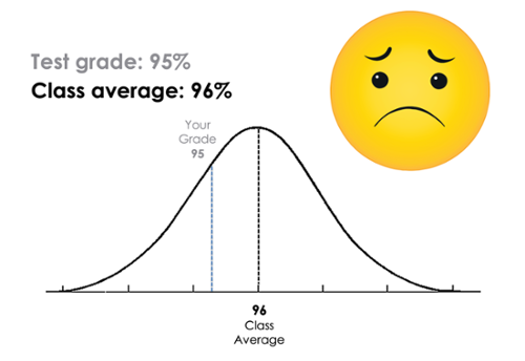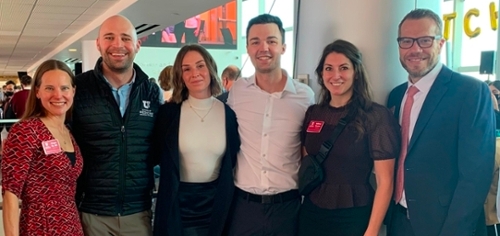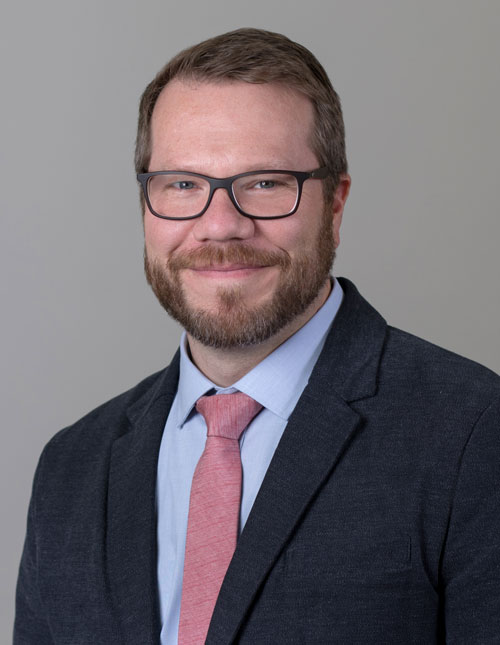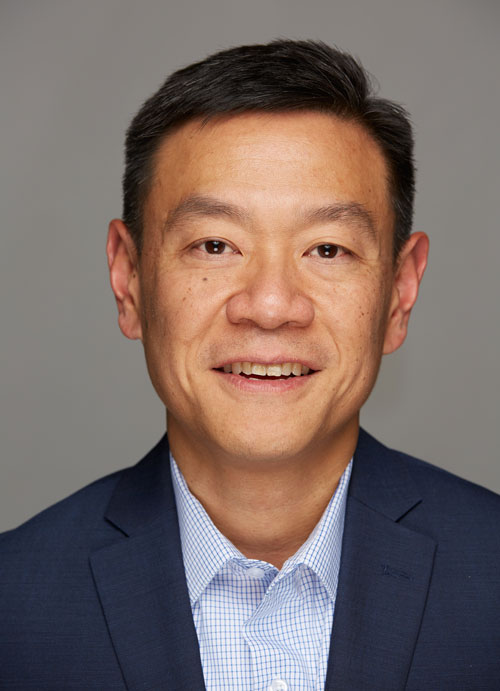Voices of U of U Health
Reconnecting with Meaning and Purpose: Excellence
Seeking ways to enhance well-being and resilience is an ongoing endeavor. This is the second in a four-part blog series about reconnecting with what is important in our lives and careers. The series focuses on medical school experience and refers to a program called RealMD as a backdrop for reflection, but the principles discussed apply anywhere.
How often do comparisons hinder your progress? Do you beat yourself up about your performance and tie your self-worth to unhealthy comparisons with others? The answers to these questions matter. Fear of being less than perfect can hold back your professional growth.
A few years ago, a new medical student scored 95 percent on a quiz and felt proud for a few seconds until viewing the class average of 96 percent. This quickly sent her into a devastating downward spiral. She began questioning her self-worth and ability to succeed in medicine.

For many medical students, a major challenge is equating self-worth with high test scores. Medical school is often the first time in some students’ academic training when they are not at the top of their class. At the University of Utah, we use a program called RealMD to reinforce important aspects of life that are not “on the test.”
“Real” stands for Relationships, Excellence, Authenticity, and Leadership. Each of these qualities has a major impact on students’ future career fulfillment.
In medical school and life, people need to feel that excellence does not mean perfection. In other words, being our best self is not a perfect score. It’s a process of discovering who we are, appreciating our unique talents, and challenging ourselves to be outside of our comfort zones in the process.
Who are you at your very best?
Excellence Does Not Mean Perfection
Growth Mindset researcher and author Carol Dweck, PhD, encourages rethinking what excellence looks like. She advocates moving away from perfectionism and toward appreciating the learning process. This shift is what is actually needed to achieve mastery.
In his book Mastery, George Leonard expands further on how to overcome perfectionism by learning to love being on a plateau and finding satisfaction in the process over the outcome. This includes accepting slow and nonlinear progress on the road to mastery.
Every Individual Has Unique Talents
In RealMD, one of the first steps to counteract perfectionism and promote excellence is for medical students to take the Clifton Strengths Assessment. Psychologist and researcher Don Clifton based the assessment off this simple question: “What will happen when we think about what is right with people rather than fixating on what is wrong with them?”
After the assessment, students get reports outlining and describing their top five talents. This becomes a starting point to help define and explore areas of strength.
We do this at the beginning of medical school to serve as a reminder that each student has unique talents. As they move through the curriculum, the reports provide a vocabulary and serve as a positive reminder when perfectionism tendencies arise.
Think about a time when you were at your very best. Very likely, you were applying your talents and strengths.
Excellence is More Than Just an Outcome
In a RealMD podcast episode, MD and PhD student Corey Shayman talks about keeping perspective around grades and performance by not losing yourself in the process. “I think everyone, regardless of whether you’re in medicine or not, has the tendency to take on a lot,” Shayman says. “The cultural expectation is that hobbies and relationships fall off. I think sometimes I’ve been able to let school fall off. And I’m so glad that I made that choice.” He realized maintaining an identity outside of medicine was also important and not worth sacrificing hobbies and relationships while in school.

MD, Sam Wilkinson, MD, Sadie Robinson, MS4, Hank Shipman, MS4, Brittany Wonsor,
Tom Hurtado, Ed.D.
Recent MD graduate Sam Wilkinson shared his story of not matching into ophthalmology last year. Although initially very challenging and difficult to navigate, Wilkinson went through a process of self-reflection that included redefining success as working through a nonlinear process and not a single outcome. He said:
“We don’t have to have exactly one outcome to be happy. We’re very goal-driven, very target-oriented individuals in medical school. Sometimes things don’t go our way and those things are okay. You can recover from that. Most successful people don’t have a linear path. People have different kinds of detours to get to where they are. The key is, keep checking with yourself, reflect, figure out, okay, is this really what I want to do? Am I going in the direction that I want to go? Am I doing this for the right reasons? Am I doing this for me? Or is it for some other purpose? And if the answer is yes, then, okay, what do I need to do to get there? And then you put your head down and get there.”
For Wilkinson, his path led to an unexpected year of research at the U and reapplying for residency this year. Last month, he successfully matched in ophthalmology at the University of Utah and will continue his training.
Wilkinson was able to find meaning in the detour and find new ways to move forward in his career. Often, we find our excellence when we are challenged. Challenges and detours are an opportunity to reflect on who we really are and what we really want. Through his own challenge, Wilkinson found his version of excellence.
Reflecting on her time as a medical student compared to now, Katherine Anderson, MD, has come to better terms with perfectionism. “I have learned to know myself and when I am doing the best I can and when to say that it is good enough,” she says. "To me, this is excellence.”
For Anderson, working with patients and as a faculty member has put things into perspective. It has allowed her to create her own definition of what it means to do good work and show up for the people she serves.
Becoming Truly Excellent
We can learn a lot from medical students. Their stories remind us that we need to redefine what it means to be excellent. We move from externally defined, linear criteria to a definition of excellence that reflects our own strengths, talents, and humanity. This is what it means to become truly excellent.
The next blog in this series will continue exploring the RealMD framework and talk about Authenticity. What does it look like to be authentic?
Other Blogs in This Series
Reconnecting with Meaning and Purpose: Relationships

